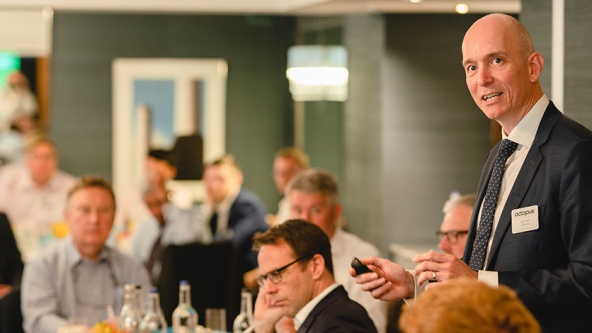If you ask 100 people to name the things which are most important in their life, you’ll be amazed by how consistent their answers are.
The number one spot is almost always family, followed by health, happiness and then money.
Although most British people are still too polite to use the “m” word, so they opt for financial security or something similar.
I’ll start with health though. While our health is fundamental to who we are, and what we’re able to do, it’s something we tend to take for granted until we reach a certain age.
It’s only when our bodies start breaking down that it becomes a bit scarier.
Up until the age of 40, I think I’d been to the doctor about once every five or six years. But over the last few years, I’ve woken up with a few more aches and pains and have ended up seeing the doctor a bit more often.
The process I go through is always the same. I pretend nothing is wrong with me for a few days and when things don’t improve I turn to the font of all knowledge – Google.
Within the Google links there will always be one that suggests I may have some sort of life-threatening illness. And because I’m not an expert, and therefore can’t rely on a Google-driven self-diagnosis, I eventually summon up the courage to go and talk to a doctor.
In my case, it’s the same doctor my parents and the rest of my family have used for the last 20 years. This is all about trust – I consider our doctor to be both an expert and someone who has my best interests in mind.
I think a doctor needs to have both these skills. For me, having empathy and understanding is just as important as the decades of knowledge our doctor built up. It’s as much about how he makes me feel as it is about the diagnosis.
This is the parallel I want to make with money. The world of finance – in particular financial planning – is unbelievably complex. And just as with your health, I don’t think it’s something you can outsource to Google, or to a robot.
Which is why, in my opinion, pure robo advice (where there’s no human interaction) simply won’t work. People won’t trust themselves to make the right decision unless the quantum of money involved is relatively small.
The role of the financial adviser is akin to that of a doctor. They’re there to listen and to guide, and they should be knowledgeable and empathetic in equal measure.
None of this should detract from the importance of technology. The financial planning and healthcare sectors will both change massively over the next decade.
Technology will be able to do 95% of the heavy lifting – for clients, patients, advisers and doctors.
Friction will disappear, and the complexities of health or financial planning will be brought to life in a way that patients and clients will find both interesting and easy to understand.
But machines will never (fully) replace people.
Great businesses will always be known for how they make their customers feel. Patients or clients will still want to be reassured and to feel like someone is looking out for them, whatever the situation.
It’s a big generalisation, but one gender tends to be better at empathy than the other. It’s not a coincidence that the majority of GPs in the UK are women. Yet fewer than 1 in 10 financial advisers in the UK are women.
I’d wager it won’t be like this a decade from now.


